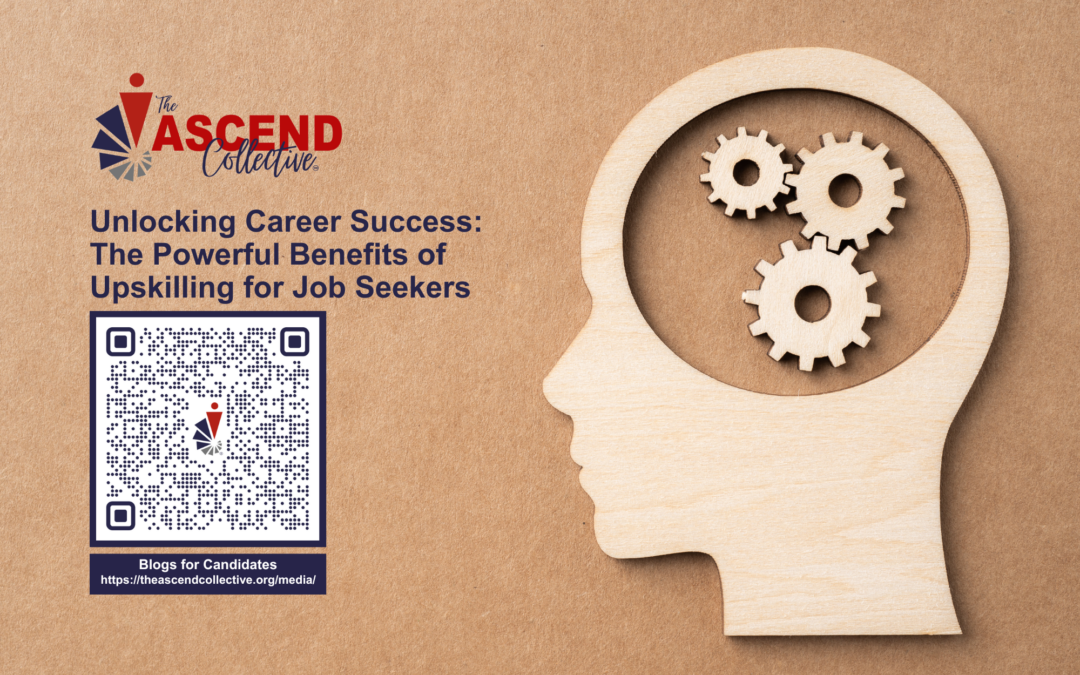In today’s rapidly evolving job market, one of the most valuable strategies for job seekers is upskilling. As industries adapt to new technologies and global trends, the skills that were once in high demand may no longer guarantee employment. Upskilling—learning new competencies or improving existing skills—has emerged as a powerful way for job seekers to stay competitive and enhance their career prospects.
Here are the key benefits of upskilling for those looking for employment:
Staying Competitive in a Shifting Job Market
The modern job market is highly dynamic, with new roles emerging and others becoming obsolete. By upskilling, job seekers can stay relevant in their industries or even transition to new ones. Acquiring digital skills, learning new tools, or gaining certifications in cutting-edge technologies ensures that candidates don’t get left behind in an ever-changing job landscape.
Improving Job Security
Employers value employees who demonstrate a willingness to learn and grow. Upskilling shows a proactive approach to personal and professional development, making job seekers more attractive to potential employers. Employers are more likely to invest in candidates who have a diverse skill set, as they tend to be more adaptable and able to take on a variety of roles within a company.
Increasing Earning Potential
When job seekers expand their skills, they increase their chances of being hired for higher-paying positions. Many roles in high-demand fields, such as technology, healthcare, or skilled trades, offer increased salaries to employees who have specific, in-demand skills. By obtaining certifications or training in specialized areas, individuals can position themselves for higher compensation.
Opening the Door to More Opportunities
Upskilling can open doors to roles that may not have been accessible previously. For example, learning programming languages or data analytics can make candidates eligible for positions in tech, while project management certifications can open opportunities in a wide range of industries. By diversifying their skill set, job seekers broaden their employment options, making them suitable for various roles across different sectors.
Adapting to Remote Work Environments
The rise of remote work has created a need for new skills in communication, time management, and digital literacy. Upskilling in areas such as virtual collaboration tools (e.g., Slack, Zoom, Microsoft Teams) and project management software allows job seekers to thrive in remote or hybrid work environments. This adaptability is particularly appealing to employers who are now offering more flexible work arrangements.
Enhancing Career Flexibility
Upskilling allows job seekers to pivot into new roles or industries, even mid-career. Whether transitioning from a traditional office role into tech or moving from one industry to another, gaining new skills makes it easier to change career paths. This flexibility can help job seekers align their careers with their interests, values, or changes in the market.
Fostering a Growth Mindset
Upskilling instills a growth mindset, which is critical for long-term career success. Those who continually learn and develop their skills are better equipped to handle change, overcome challenges, and take on leadership roles. A growth mindset also increases job satisfaction, as individuals feel more empowered and capable in their work.
Boosting Confidence
Learning new skills and earning certifications can boost confidence during the job search process. When job seekers feel that they are equipped with the tools necessary to succeed, they can approach interviews, networking events, and job applications with more self-assurance. This increased confidence often translates into better performance during job interviews and interactions with potential employers.
Future-Proofing Careers
As automation and artificial intelligence continue to change the way businesses operate, upskilling helps individuals remain valuable in a technology-driven economy. Skills such as critical thinking, problem-solving, and emotional intelligence, combined with tech literacy, will be crucial for future roles that haven’t even been defined yet. Upskilling now ensures that job seekers can remain employable as the workforce evolves.
Conclusion
For job seekers, upskilling is more than just an investment in education—it’s an investment in their future. By continually learning and developing new competencies, individuals can position themselves as attractive candidates in today’s competitive job market. Whether it’s for personal growth, career advancement, or future-proofing a career, the benefits of upskilling are undeniable.
Now is the time to take advantage of online learning platforms, certification programs, and professional development opportunities. Upskilling is the key to unlocking new career possibilities and securing long-term employment success.

